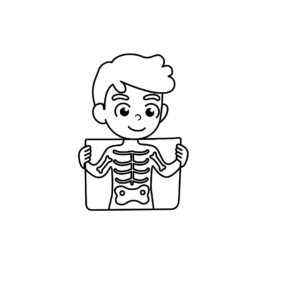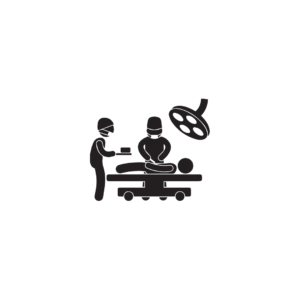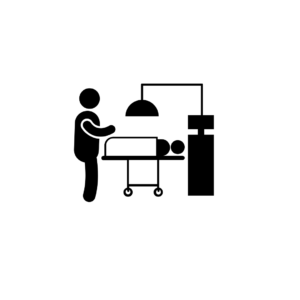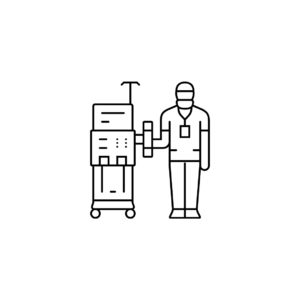Description
Overview of Bachelor of Science in Medical Laboratory Technology (BMLT)
The Bachelor of Science in Medical Laboratory Technology (BMLT) is an undergraduate degree program designed to prepare students for careers in the medical laboratory field. This program focuses on the study, analysis, and interpretation of laboratory tests that play a crucial role in diagnosing diseases, monitoring health, and guiding patient treatment.
Core Areas of Study in BMLT
Clinical Microbiology
Study of microorganisms, including bacteria, viruses, fungi, and parasites, and their role in disease. This includes techniques for isolating and identifying pathogens.
Clinical Biochemistry
Understanding the chemical processes within the human body and how lab tests measure biochemical substances in blood and other body fluids to assess health.
Hematology
Examination of blood and its components, including red and white blood cells, platelets, and coagulation factors, to diagnose blood disorders.
Immunology
Study of the immune system, including the principles of serology and the use of immunological tests to detect diseases and autoimmune conditions.
Pathology
Understanding disease mechanisms and the examination of tissue samples for the diagnosis of diseases through techniques such as histopathology.
Laboratory Management and Quality Control
Principles of managing a medical laboratory, including quality assurance, safety protocols, and regulatory compliance.
Phlebotomy
Techniques for collecting blood samples from patients for laboratory testing, with emphasis on patient care and safety.
Molecular Diagnostics
Exploration of advanced techniques like PCR (Polymerase Chain Reaction) and genetic testing to diagnose diseases at the molecular level.
Health Informatics
Introduction to laboratory information systems and data management in healthcare, ensuring efficient operation of laboratory services.
Curriculum Structure
A BMLT program typically includes:
Core Courses: Required foundational courses covering various aspects of medical laboratory technology.
Elective Courses: Opportunities to specialize in specific areas of interest, such as advanced molecular diagnostics or clinical research.
Clinical Practicum: Mandatory hands-on experience in a clinical laboratory setting, allowing students to apply theoretical knowledge in real-world scenarios.
Capstone Project or Research: A final project that integrates learning and allows students to conduct research related to medical laboratory technology.
Admission Requirements
Admission to a BMLT program generally requires:
A high school diploma or equivalent, often with a strong background in biology, chemistry, and mathematics.
A satisfactory GPA and completion of prerequisite courses in science.
Letters of recommendation (sometimes).
A personal statement or essay explaining the applicant’s interest in medical laboratory technology.
Skills Developed in a BMLT Program
Graduates of the Bachelor of Science in Medical Laboratory Technology program will develop a range of skills, including:
Analytical Skills: Ability to conduct laboratory tests and analyze results accurately, ensuring reliable diagnostic information.
Technical Proficiency: Skills in operating and troubleshooting laboratory equipment and technology.
Attention to Detail: Precision in performing tests and documenting results, vital for accurate diagnoses.
Problem-Solving Skills: Ability to identify issues in laboratory procedures and develop effective solutions.
Effective Communication: Proficiency in discussing laboratory results with healthcare providers and coordinating patient care.
Career Opportunities
Graduates with a Bachelor of Science in Medical Laboratory Technology can pursue various career paths, such as:
Medical Laboratory Scientist/Technologist
Performing laboratory tests, analyzing results, and ensuring the quality of testing processes.
Clinical Microbiologist
Specializing in the identification of pathogens and the diagnosis of infectious diseases.
Hematology Technologist
Focusing on blood-related tests to diagnose conditions such as anemia, clotting disorders, and blood cancers.
Transfusion Medicine Technologist
Working in blood banks and the transfusion services sector, ensuring safe blood transfusions for patients.
Quality Assurance Coordinator
Overseeing lab quality control processes to maintain compliance with safety and regulatory standards.
Laboratory Manager
Managing laboratory operations, supervising staff, and ensuring quality in testing services.
Research Scientist
Conducting research in academic or industrial settings to develop new diagnostic tests and treatments.
Conclusion
The Bachelor of Science in Medical Laboratory Technology (BMLT) provides students with essential knowledge and skills for a successful career in the medical laboratory field. As healthcare continues to evolve and advance, the demand for skilled medical laboratory professionals remains high. If you have further questions about the BMLT program or related topics, feel free to ask!









